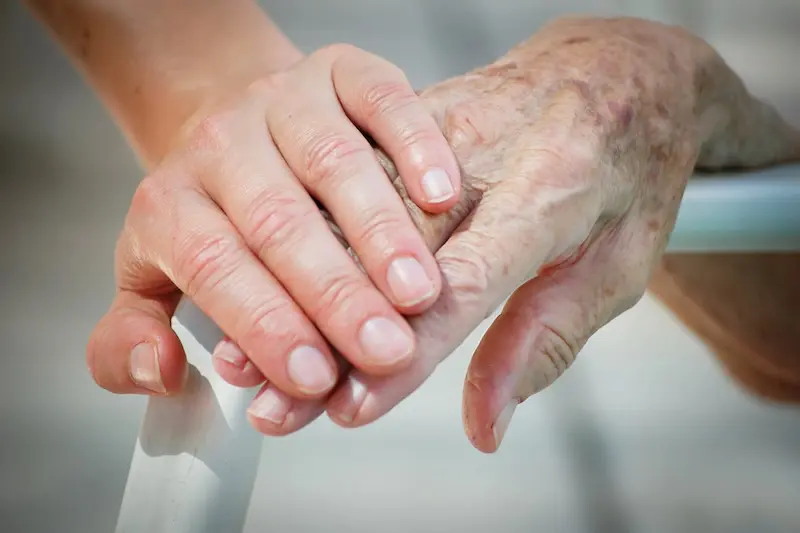Balancing work, family life, and caring for an elderly parent or vulnerable relative can be overwhelming. The emotional and physical toll is real, but home help for elderly family members offers a compassionate solution that eases your load while improving your loved one’s quality of life.
In Ireland, these services support older adults in living safely and independently at home. From help with daily tasks to emotional support, home help can make a huge difference for both the individual and their family.
In this article, we explore seven key benefits of home help, including enhanced safety, emotional well-being, and reduced stress for caregivers.
#1: Promotes independence and dignity
Home help services empower elderly individuals to maintain their independence while receiving essential support. By enabling people to stay in their own homes and retain control over daily decisions, home help preserves dignity and fosters a stronger sense of self-worth.
Supporting daily routines without taking over
The goal of home help isn’t to take control; it’s to provide just enough support to keep elderly individuals active and involved in their care.
Carers work with, not just for, their clients. This collaborative approach reinforces decision-making, encourages confidence, and maintains a sense of normality in everyday life.
Personalised care allows clients to continue engaging in daily routines, such as grooming, dressing, and light meal preparation, in a way that supports autonomy and mental well-being.
Maintaining control in familiar surroundings
Remaining at home provides a vital anchor for emotional health and stability:
- Familiar spaces reduce stress and confusion
- Staying connected to neighbours and local services helps prevent isolation
- Regular routines support memory, comfort, and emotional resilience
Home help allows seniors to remain grounded in the environment they know best, enhancing their quality of life while reducing the need for residential care.
#2: Improves safety at home
Safety is a major concern for families caring for older relatives. Home help services directly address this by supporting daily tasks and identifying risks before they become problems. From fall prevention to emergency response, having trained professionals visit regularly makes the home environment significantly safer for older individuals.
Regular check-ins provide reassurance
Consistent visits bring peace of mind:
- Carers check for signs of health decline or distress
- Families are kept informed about changes in condition
- Support can be adjusted quickly to meet new needs
This regular monitoring means that elderly individuals receive the right support at the right time, reducing emergency risks and promoting early intervention.
Reduced risk of accidents and falls
Carers are trained to spot hazards and minimise risks:
- Helping with mobility reduces the chance of falls
- Managing light household tasks lowers physical strain
- Identifying dangers, like slippery floors or loose mats, helps prevent injury
With an extra pair of eyes and hands, the risk of accidents is greatly reduced, making daily life safer and less stressful for elderly or vulnerable people, and their families!
#3: Strengthens emotional well-being
Home help offers more than physical support; it also provides a vital emotional connection.
Companionship care plays a key role in reducing loneliness and supporting cognitive health, especially for those who may live alone or feel isolated. Social interaction, conversation, and regular friendly faces all contribute to stronger mental and emotional well-being.
Companionship and conversation
A simple chat over a cup of tea can work wonders. Carers offer a regular human connection that:
- Reduces feelings of isolation
- Preserves cognitive function
- Boosts mood and mental clarity
These interactions become something clients look forward to, helping them feel seen, valued, and supported.
Home help for elderly family members means reduced stress for familial carers
Sharing caregiving responsibilities with trusted professionals relieves pressure on families. Instead of being overwhelmed by daily tasks, loved ones can focus on meaningful time together.
Families gain peace of mind knowing their relatives are safe and cared for, which reduces emotional strain and improves overall family dynamics.

#4: Personalised, flexible support
No two people are the same, and neither are their care needs. Home help services are designed to be tailored to individual preferences, routines, and health conditions. Flexibility is a core strength of these services, allowing support to be adapted as situations change.
Tailored to the individual’s needs
Care plans are developed through in-depth needs assessments and are built around the client’s:
- Preferred routines
- Specific health or mobility requirements
- Personal goals and comfort levels
This ensures that support feels empowering rather than intrusive, respecting the individual’s way of life.
Adjusts as needs evolve
Care requirements often change over time. Home help services adapt to:
- Health fluctuations
- Recovery periods
- Long-term care planning
Whether a client needs short-term support after hospitalisation or increasing help over time, the service evolves to meet their changing needs.
#5: Encourages healthy habits
Staying healthy at home is all about daily choices. Home help encourages routines that support long-term physical and mental well-being, from nutritious meals to gentle physical activity.
Support with nutrition and mealtimes
Carers help maintain healthy eating habits by:
- Preparing light meals and snacks
- Assisting during mealtimes to ensure proper nutrition
- Encouraging hydration and balanced food choices
This support helps prevent issues like malnutrition and dehydration, which are common concerns in older adults.
Gentle encouragement for daily activity
Movement matters. Carers can:
- Assist with light exercise, like walking or stretching
- Encourage participation in household tasks
- Tailor activities to suit the client’s ability
This kind of gentle stimulation improves mood, keeps muscles active, and reduces the risk of anxiety or depression.
#6: Home help for elderly family members builds trust and community
Seeing the same familiar carers builds trust, comfort, and emotional security. This continuity not only improves the quality of care but also strengthens relationships between clients, families, and support providers.
In addition, home help services often act as a bridge to local health professionals, community groups, and resources, helping clients stay connected and engaged.
Familiar, consistent support staff
Trust grows when carers are consistent:
- Clients feel more at ease with familiar faces
- Communication becomes more open and honest
- Families know exactly who is entering their loved one’s home
This consistency builds a true sense of partnership and emotional safety.
Strengthens links to local resources
Carers often support clients by:
- Coordinating with public health nurses
- Passing on important health updates
- Connecting individuals with clubs, groups, or services in their area
These community ties reduce isolation and promote a greater sense of belonging.
#7: Eases transitions and long-term planning
Life changes, like hospital discharges or shifts in mobility, can be challenging for older individuals.
Home help supports smoother transitions and helps families prepare for the future with confidence. From short-term recovery support to long-term planning, these services provide stability and structure.
Helps delay or avoid residential care
With the right support in place, many older adults can continue to live at home comfortably:
- Reducing the need for nursing home admission
- Delaying or avoiding moves to unfamiliar settings
- Easing emotional and financial strain on families
Home help allows ageing in place with dignity and control.
Supports end-of-life comfort and familiarity
In later life stages, continuity and comfort matter most. Home help can provide:
- Trusted carers to offer compassionate support
- Familiar surroundings that ease emotional distress
- Family-focused care that respects dignity and preferences
This gentle, personalised support brings peace of mind during the most sensitive transitions.

The best home help for elderly family members starts with us
Choosing home help for your elderly family member is a powerful step towards preserving their independence, dignity, and comfort. With the right support, older adults can continue to enjoy life in their own homes, surrounded by familiar routines and treasured memories, while families gain peace of mind knowing their loved ones are safe and well cared for.
At Blanchardstown & Inner City Home Care, we’re proud to provide professional, compassionate home help services throughout Dublin. Whether it’s light household tasks, assistance with hygiene routines, or help with shopping and daily living, our Garda-vetted, ID-badged carers are committed to helping your loved one thrive – never taking over, but supporting them in the way that suits them best.
We tailor our care plans through a comprehensive assessment process and work closely with each family to ensure care is delivered respectfully, safely, and consistently. With full insurance, HSE approval, rigorous training, and decades of experience, we provide home help services you can trust.
Reach out to our team today and let’s create a plan that gives your loved one the care they deserve, right where they belong: at home.


